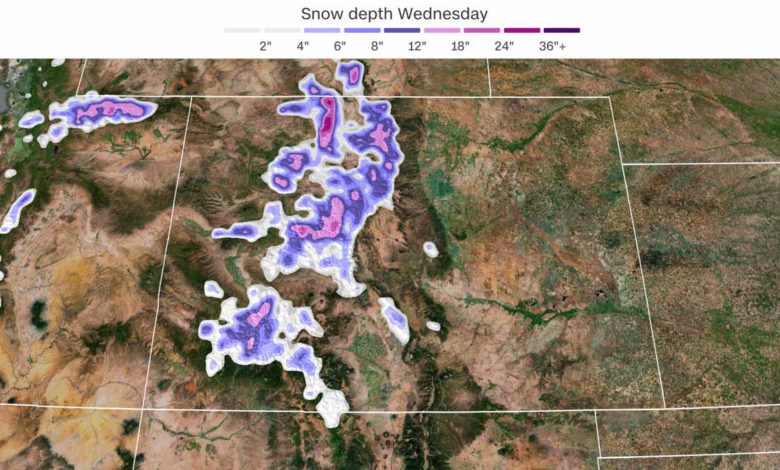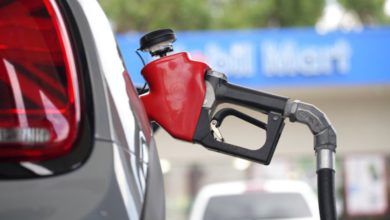

Snowless in Colorado? No, this is not a follow-up to the Tom Hanks movie "Sleepless in Seattle," but rather a real-life drama unfolding across the state with very real-life consequences.It's been 224 consecutive days (and counting) since it snowed a measurable amount in Denver, and it has just broken the record for the latest date for a first snowfall — a record that has held since snowfall records began in 1882. In that time, Denver has never entered December without measurable snow.This extended dry period has implications for the state's long-standing drought, a dwindling water supply and a population that wants to hit the slopes."Everywhere across the state is experiencing some kind of drought conditions," Ayesha Wilkinson, a National Weather Service meteorologist, told CNN. For example, "Denver has just recorded their second-least snowiest November," with no measurable snow observed — meaning they had some flurries, but nothing accumulated. This November is behind only 1949 when literally "no flakes fell from the sky."Colorado looks representative of the rest of the country, too, at the start of meteorological winter on December 1, and only 11.1% of the United States is covered in snow.Ski resorts push pause on opening dayWhile the state endures one of the driest and warmest periods in modern record-keeping, the effect it's having on ski resorts can't be overlooked.Like Telluride, some ski resorts were forced to delay their opening day until after Thanksgiving, foregoing revenue from the extended holiday weekend.Ski resorts have had to make artificial snow to cover the deficit and make it possible for skiers to return safely to the mountains. Even so, the weather hasn't exactly played ball."Normally we have about 300 hours of snowmaking under our belts by this time of year, but we've been able to run our guns about 200 hours" Loryn Duke, director of communications at Steamboat Ski Resort, explained. "Our snowmakers are literally filling in for Mother Nature."Optimal snowmaking conditions involve a "combination of low temperatures and low humidity," also known as the wet bulb. Conditions within the mountains must remain at or below freezing both at night and during the day to help maximize the base snowpack."We have all the tools in our kit to assist Mother Nature and then once Mother Nature shows up, we are ready to welcome her," said Duke.Snow in Colorado is not only crucial for the nearly $5 billion ski industry, but it's also imperative for the state's access to fresh water.Drought conditions worsen across ColoradoOver two-thirds of Colorado's water supply comes from the snowpack, according to the Environmental Center at the University of Colorado Boulder. Less snow means less water, which is bad news for everyone, considering the long-standing drought plaguing the western United States.The Colorado River Basin, whose headwaters originate in the western part of the state, supplies more than 40 million Americans with their drinking water. A water shortage has been declared for the first time, fueled in part by climate change.Colorado's specific drought situation has once again taken a turn for the worse. After some brief improvement over the spring and summer, the statewide percentage under moderate drought was 88% last week and now sits at 95% with no precipitation in the forecast until next week.Denver just recorded its "3rd warmest November on record," Wilkinson told CNN. The heat continues into December as record highs are challenged once again, along with below-average rainfall, consistent with the ongoing drought. "To date, Denver has only received 12.37 inches of liquid precipitation while normally we would have 14.14 inches," explained Wilkinson.Winter conditions can make a comebackJust because it's been a slow start to the winter season, it doesn't mean the rest of the winter will follow suit. December has historically been known to produce some healthy snowfall totals in Denver, with an average of 8 inches for the month. This often equates to feet of snow in the mountains, where skiers welcome it with open arms.Joel Gratz, who forecasts snow for ski resorts and is founding meteorologist of OpenSnow, told CNN Weather, "A couple of feet of snow can help many mountains open a lot of terrain. One to three storms can deliver this much snow, so things can change quickly."Colorado ski enthusiasts look for storms that come in from the southwest, because they carry abundant moisture from the Pacific Ocean that can equate to several feet of snow in the mountains. Another favorable track for snowstorms comes from the northwest, which favors lighter and fluffier snow trademarked by Steamboat Ski Resort as Champagne Powder.
Snowless in Colorado? No, this is not a follow-up to the Tom Hanks movie "Sleepless in Seattle," but rather a real-life drama unfolding across the state with very real-life consequences.
It's been 224 consecutive days (and counting) since it snowed a measurable amount in Denver, and it has just broken the record for the latest date for a first snowfall — a record that has held since snowfall records began in 1882. In that time, Denver has never entered December without measurable snow.
This extended dry period has implications for the state's long-standing drought, a dwindling water supply and a population that wants to hit the slopes.
"Everywhere across the state is experiencing some kind of drought conditions," Ayesha Wilkinson, a National Weather Service meteorologist, told CNN. For example, "Denver has just recorded their second-least snowiest November," with no measurable snow observed — meaning they had some flurries, but nothing accumulated. This November is behind only 1949 when literally "no flakes fell from the sky."
Colorado looks representative of the rest of the country, too, at the start of meteorological winter on December 1, and only 11.1% of the United States is covered in snow.
Ski resorts push pause on opening day
While the state endures one of the driest and warmest periods in modern record-keeping, the effect it's having on ski resorts can't be overlooked.
Like Telluride, some ski resorts were forced to delay their opening day until after Thanksgiving, foregoing revenue from the extended holiday weekend.
Ski resorts have had to make artificial snow to cover the deficit and make it possible for skiers to return safely to the mountains. Even so, the weather hasn't exactly played ball.
"Normally we have about 300 hours of snowmaking under our belts by this time of year, but we've been able to run our guns about 200 hours" Loryn Duke, director of communications at Steamboat Ski Resort, explained. "Our snowmakers are literally filling in for Mother Nature."
Optimal snowmaking conditions involve a "combination of low temperatures and low humidity," also known as the wet bulb. Conditions within the mountains must remain at or below freezing both at night and during the day to help maximize the base snowpack.
"We have all the tools in our kit to assist Mother Nature and then once Mother Nature shows up, we are ready to welcome her," said Duke.
Snow in Colorado is not only crucial for the nearly $5 billion ski industry, but it's also imperative for the state's access to fresh water.
Drought conditions worsen across Colorado
Over two-thirds of Colorado's water supply comes from the snowpack, according to the Environmental Center at the University of Colorado Boulder. Less snow means less water, which is bad news for everyone, considering the long-standing drought plaguing the western United States.
The Colorado River Basin, whose headwaters originate in the western part of the state, supplies more than 40 million Americans with their drinking water. A water shortage has been declared for the first time, fueled in part by climate change.
Colorado's specific drought situation has once again taken a turn for the worse. After some brief improvement over the spring and summer, the statewide percentage under moderate drought was 88% last week and now sits at 95% with no precipitation in the forecast until next week.
Denver just recorded its "3rd warmest November on record," Wilkinson told CNN. The heat continues into December as record highs are challenged once again, along with below-average rainfall, consistent with the ongoing drought. "To date, Denver has only received 12.37 inches of liquid precipitation while normally we would have 14.14 inches," explained Wilkinson.
Winter conditions can make a comeback
Just because it's been a slow start to the winter season, it doesn't mean the rest of the winter will follow suit. December has historically been known to produce some healthy snowfall totals in Denver, with an average of 8 inches for the month. This often equates to feet of snow in the mountains, where skiers welcome it with open arms.
Joel Gratz, who forecasts snow for ski resorts and is founding meteorologist of OpenSnow, told CNN Weather, "A couple of feet of snow can help many mountains open a lot of terrain. One to three storms can deliver this much snow, so things can change quickly."
Colorado ski enthusiasts look for storms that come in from the southwest, because they carry abundant moisture from the Pacific Ocean that can equate to several feet of snow in the mountains. Another favorable track for snowstorms comes from the northwest, which favors lighter and fluffier snow trademarked by Steamboat Ski Resort as Champagne Powder.
Source link








